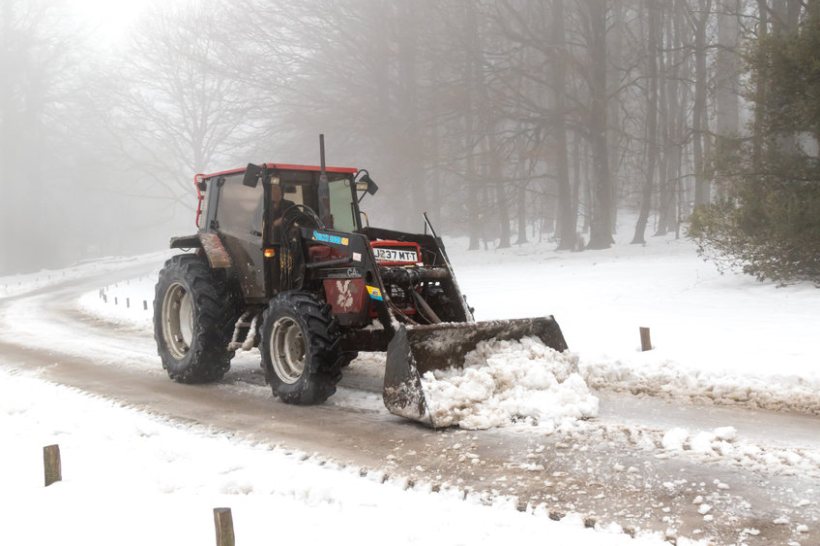
Rural communities are being encouraged to become more storm resilient after the cost of Storm Dudley, Eunice and Franklin exceeded £92m, NFU Mutual figures show.
The storms hit the UK around a year ago, bringing dangerous winds of over 120mph, damaging buildings, ripping trees from the ground, interrupting travel routes and flooding local areas.
Farmers across the country also saw their work disrupted as the extreme weather put livestock and people at danger and disrupted important farm activities.
The South West and South East of England and parts of Wales bore the brunt of the destruction, with NFU Mutual receiving claims from more than 13,000 customers – the vast majority of which came in these regions.
The average cost of the damage reported to the rural insurer was over £7,000, with some claims running into tens or hundreds of thousands of pounds.
With the risk of devastating damage clear, offering advice has been given on how farmers can become storm resilient and protect their rural businesses from extreme weather.
Hannah Binns, rural affairs specialist at NFU Mutual, said that while the weather was calm, farmers could take preventative measures.
“Carrying out repairs to buildings, fences and walls, identifying higher ground to move livestock to in the event of flooding, and taking stock of alternative fuel and power sources in case of a power cut or disruption.
“Safety for farmers, family members and workers should always be the priority during stormy conditions and while fully understanding the pressures farmers are under, it is vital they avoid taking risks which could lead to injury or fatality."
She said that downloading the What3Words app could help in future to provide a location in the event of an emergency.
“For lone workers, it is important they tell someone where they will be and their expected time back, as well as carry a charged mobile phone while working outside."
Storm resilience advice for farmers
• Ensure you have emergency contact details for employees to maintain contact during an extreme weather event.
• Regularly inspect your farm and keep on top of maintenance by carrying out necessary repairs to buildings, fences and walls whilst the weather is calm.
• Check that tiles, slates, and roofing sheets are in place and put away any items that cannot be secured.
• Avoid being near barn doors if there are high winds.
• Make sure gutters are not leaking and are clear of leaves and other debris.
• Protect and lag water pipes in vulnerable areas and know where the water supply is so that you can turn it off in the event of burst pipes.
• Ensure you have a good tree inspection programme in place, paying particular attention to trees bordering buildings, roads, railway lines and rights of way.
• Prepare for power cuts: have torches and batteries to hand and make sure any generators are ready to use, and can run at full load for long periods of time, if required.
• Plan evacuation routes to get staff and livestock to safety in the case of extreme weather such as floods – identify higher ground that you can move livestock to in event of flooding.
• Consider transport routes whether traveling will be safe and practical.
Checklist for rural homeowners
• Make sure all doors and windows can be securely closed.
• Prepare for power cuts: Have torches and batteries to hand and make sure any generators are ready to use if required. If you are using candles, make sure you use them safely and extinguish when leaving the room, and make sure nothing hangs over the candles.
• Inspect your property and make repairs to things like loose fence panels or gates.
• Make sure gutters are not leaking and are clear of leaves and other debris.
• Have a space to put loose outdoor furniture like garden chairs and trampolines. If you do not have an indoor space in which to put them, ensure you have a means of tying down or otherwise securing the furniture.
• Safely and regularly check that tiles, slates and roofing sheets are in place, securing any that are not.
• Regularly inspect trees on your property, removing loose or overhanging branches which may cause damage to your or others’ property in a storm.
• Repair or unblock any faulty drains as soon as you notice they are not draining.
• Consider the impact of things like a paved or concreted drive, or artificial grass, on drainage. Lack of drainage can contribute towards flooding.
• If you have a garage, clear a space for your vehicle in the event of a storm. If you do not have a garage, plan where you can park vehicle during a storm – this should be away from any walls, fences or branches which could fall and damage the vehicle.
• Protect and lag water pipes in vulnerable areas and know where the water supply is so that you can turn it off in the event of burst pipes.
• Stay alert for Met Office weather warnings in your area.
• Have your insurer’s emergency helpline number available.
